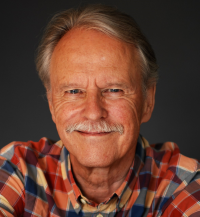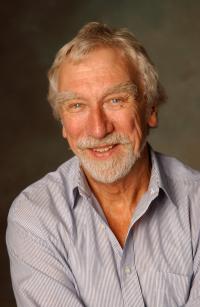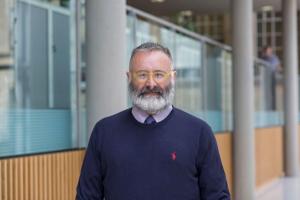KEYNOTES ACEI2020
Three crises of Cultural Policy / Professor Kate Oakley
 |
Cultural Policy is moribund, seemingly stuck in the same arguments, while around it a series of crises are unfolding. The Creative Economy Framework remains the dominant paradigm for public policy, but it increasingly focusses only on the growth potential of a narrow set of digital activities. Debates about 'cultural value' have so far failed to develop an alternative coherent narrative. I will address this through three particular crises where I argue that cultural policy is failing. The first is a crisis of representation, where exclusions of class, gender and race have weakened the legitimacy of publicly funded culture. The second is a crisis of communication where the gap between culture and media policy means that the former has little to say about the new social media giants - the primary gatekeepers of our cultural life. The third is the environmental crisis where cultural policy has a clear role to play - but one that may be hampered by these current failings. |
Bio
Kate Oakley is Head of the School of Culture and Creative Arts and Professor of Cultural policy at the University of Glasgow. She is best known for her work in cultural industries policy and labour markets with particular attention to questions of inequality. She is currently working on the CUSP project which considers the role of cultural activities in environmental sustainability (www.cusp.ac.uk) Books include Culture, Economy & Politics: the case of New Labour (2015) with Hesmondhalgh, Lee, & Nisbett; the Routledge Companion to the Cultural Industries (2015) co-edited with Justin O’Connor and Cultural Policy (2014) co-written with David Bell. She is currently co-editing, Cultural Industries and the Environmental Crisis with Mark Banks, be to published by Springer in 2020. Kate was previously Chair of Cultural Policy at the School of Media and Communications in Leeds.
Cultural overtourism / Professor Bruno S. Frey
 |
In the near future, an enormous increase in the number of tourists is predicted due to low flight prices and a great increase of cruise ship passengers. The local populations will be exposed to strong negative external effects, the cultural site will be damaged, and the environment polluted. I propose a radically new approach to deal with major negative effects resulting from cultural overtourism. The major attractions of heavily visited historical sites are to be identically replicated in a new location emphasizing a vivid historical experience supported by modern virtual technology. Under my proposal, tourists will no longer visit the historical sites but will travel to Historical Replications (HIRE) with more intense cultural experience achieved through modern digital technology (such as holograms). My proposal provides an alternative to today’s overcrowded cultural sites doomed to destruction by overtourism. |
Bio
Born in Basel, Switzerland in 1941, Swiss citizen. Study of economics at the Universities of Basel and Cambridge (UK); Ph.D. (1965) and Habilitation (1969), Associate Professor (1970-2011) at University Basel. 1970-1977 Full Professor at University Constance and 1977-2012 University Zurich. 2010-2013 Distinguished Professor at University Warwick. 2012-2015 Senior Professor at Zeppelin University. Since 2015 Permanent Visiting Professor at University Basel. 1990-1991 Visiting Research Professor at University Chicago. Honorary Doctorates from five European Universities in five different countries. Distinguished Fellow of the Association for Cultural Economics, International. He is the author of numerous articles in professional journals and books, including Not Just for the Money (1997), Economics as a Science of Human Behaviour (1999), The New Democratic Federalism in Europe (with Reiner Eichenberger, 1999), Arts & Economics (2000), Inspiring Economics (2001), Successful Management by Motivation (with Margit Osterloh, 2001), Happiness and Economics (with Alois Stutzer, 2002), Dealing with Terrorism – Stick or Carrot? (2004), Economics and Psychology (co-edited with Alois Stutzer, 2007), Happiness: A Revolution in Economics (2008), Glück: Die Sicht der Ökonomie (with Claudia Frey Marti, 2010), Economic Ideas You Should Forget (co-edited with David Iselin, 2017), Wirtschaftswissenschaftliche Glücksforschung. Kompakt – verständlich – anwendungsorientiert (2017), Honours versus Money. The Economics of Awards (with Jana Gallus, 2017), Economics of Happiness (2018), Economics of Art and Culture (2019), Ökonomik der Kunst und Kultur (2019), 21st Century Economics. Economic Ideas You Should Read and Remember (co-edited with Christoph Schaltegger, 2019).
|
|
Joke Economics: The Low Profile of Comedy in the Economics of Art and Culture Professor Alan Collins |
Bio
Professor Alan Collins is Head of the Department of Economics at Nottingham Business School at Nottingham Trent University in the UK. He holds a PhD in Regulatory Economics from the University of East Anglia, UK and is currently President of the Association of Cultural Economics International, the global professional association for researchers in the economics of the arts, culture and creative industries. He has twice been Hobart Houghton Fellow at Rhodes University, South Africa and served as Distinguished Research Fellow at the South African Cultural Observatory in Port Elizabeth. Recently, Alan was a member of the ‘PERCEIVE’ project team (www.perceiveproject.eu) investigating, in different European regions, to what extent citizens actually feel European and to what extent this actually relates to the implementation of European cohesion policies. Before moving to Nottingham, he was Head of Economics at the University of Portsmouth and previously held posts at the University of Strathclyde and in the private sector, working with civil engineers and planners on the economic evaluation of infrastructure projects.
Alan has published well over 90 peer reviewed journal articles plus various books, book chapters and encyclopaedia entries. Currently he is on the editorial board of the Journal of Cultural Economics and has recently served again as guest editor of Urban Studies. The Economic and Social Research Council, Esmée Fairbairn Charitable Trust and various industry bodies and local authorities, have funded much of Alan’s past research work. His research interests focus on the economics of public policy in a variety of policy settings including art and culture, health, crime, natural resources and transport.
 |
The relevance of Cultural Economics for Cultural Policy: Can we do better? /Professor David Throsby In his keynote Professor Throsby will provide a critical overview of what economics can ideally contribute to debate about cultural policy and an assessment of how well or how poorly we have performed in this regard. Among other things, he will discuss the extent to which the rhetoric about creative/cultural industries has driven cultural policy towards becoming simply an arm of economic policy. |
bio
David Throsby is Distinguished Professor of Economics at Macquarie University in Sydney. He is internationally recognised for his research and writing on the economics of art and culture. His current research interests include heritage economics, the creative industries, the economic circumstances of creative artists, culture in sustainable economic development, and the relationships between economic and cultural policy. His recent books include Economics and Culture, which has been translated into eight languages, and The Economics of Cultural Policy, both published by Cambridge University Press.


